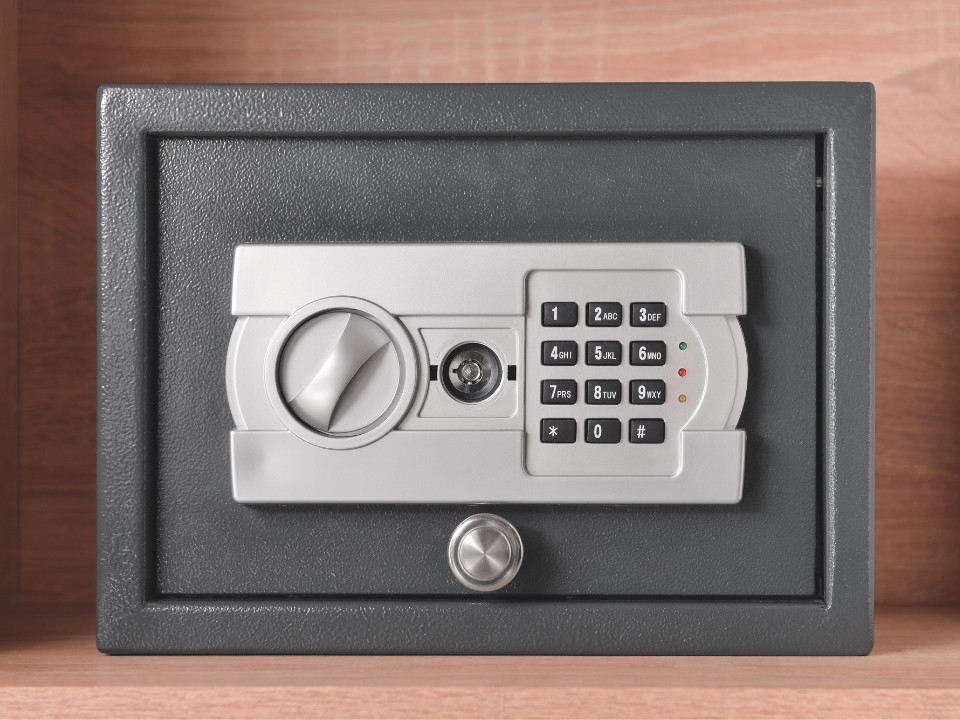Choosing to invest in gold and other precious metals is a wise decision. These assets have a proven track record of financial stability that shows no signs of changing. However, storing these valuable commodities introduces a level of difficulty that many investors do not consider. Therefore, finding the proper storing situation for your precious metal investment is key to providing the peace of mind you desire.
There are several ways to ensure the safety and security of your gold investment. These assets are the lifeline to financially protecting your family for many years, so choosing the proper storage method is vital to guarantee its safety. Below are recommended practices for storing your gold.
Safe Deposit Box
Using a safe deposit box to store your gold and other precious metals is a viable and ideal solution. Because banks take great care to protect their customers’ assets, this is indeed a “safe” method of gold storage. However, there are a few drawbacks to using a safe deposit box.
First, using a safe deposit box means you only have access to the assets during regular banking hours. This time constraint requires planning and foresight if you are going to take out the assets for any reason during this limited window.
Second, banks do not insure precious metals stored on their premises. The responsibility falls on the owner of the safe deposit box. This fact poses a significant difficulty for holding these assets as the insurance is costly. Further, insurers prefer not to cover precious metals kept at banks, so finding one is tricky.
Finally, there is an additional cost for renting the safe deposit box to store these assets. All of these factors impact the overall financial strength of the gold and precious metals being stored.
Vault Storage or Depository
Depositories or vault storage facilities offer next-level protection of gold and other precious metal assets. These buildings serve a single purpose: to protect the valuables that reside within them. Their design translates into increased levels of security and care taken to protect your assets. In addition to 24-hour security, such protection includes storage in a climate-controlled environment that protects these assets from any damage caused by heat.
Another benefit of using a depository to store your gold and other precious metals is the fact that these institutions insure the assets they keep. This service is ideal for clients who want not only the assurance that their valuables are being protected physically but also to avoid the additional expense of personally insuring their assets, which is expensive.
Depositories offer options regarding where your valuables reside as well. They are either stored in large rooms with other valuables or kept in specially designated areas. Either way, protecting these assets is the primary goal of these institutions.
The one drawback to using depositories for storing gold and precious metals is that clients are subject to the institution’s hours of operation, much like safe deposit boxes. This means clients do not have access to their valuables 24 hours a day, seven days a week. Despite this fact, vaults and depositories are an excellent method for storing your gold and other precious metals.
Private Safes

At-home safes are ideal for storing essential documents and other valuables. Not only do they protect your assets like gold and precious metals, but they also keep them close while staying hidden out of the way. This method of storing your valuable items offers a twofold benefit.
First, private safes keep your valuables away from prying eyes and hidden from potential burglars. If someone enters your home, these valuables are unseen and safe from being stolen. Second, they provide investors the peace of mind of proximity to their assets. Many investors enjoy physically holding their gold and silver bars while also knowing their investment is close by and not being watched by strangers.
However, there is a drawback to using at-home safes to store your gold and precious metals. Some home insurance policies do not cover loss or damage to these assets in the case of fire or other damage to your home. If your home insurance does not include this coverage, adding additional insurance protection for these assets can be pricey.
Despite the insurance coverage issues associated with storing these valuables in an at-home safe, this protection method is ideal if asset owners meet a few conditions. First, the safe is both fire and waterproof. Second, the safe resides in a concealed location that is not difficult to access. Finally, very few people know the safe location and its contents. Following these three rules will help keep your valuables protected in a private safe.
Hidden Places
For some, placing valuables in a hidden or hard-to-reach location is their preferred method for storing these items. Popular choices include burying one’s assets, hiding them in a mattress, or mixing them among other seemingly less valuable stored objects in an attic or basement. However, these storage options provide very little security for these valuable assets.
First, for some precious metals, exposure to the elements may cause damage that impacts their overall value. For certified or graded coins, the condition of the asset critically affects its value especially impurities. Gold or silver bars are less financially affected by their state and generally handle exposure to harsh conditions better.
Second, hiding valuables in locations in or around your property leaves them vulnerable to either forgetting where you placed them or other people looking for them. Both situations pose significant threats to these precious possessions, and while hiding these assets means easy accessibility, it also poses a substantial risk.
FAQ for Storing Gold and Precious Metals

Where is the best place to store gold and precious metals?
Generally, you have three options when it comes to the best place to store your valuable assets like gold and precious metals: your home, a safe deposit box, or a depository. Choosing among these is a matter of personal preference. While home storage or safe deposit boxes are acceptable storage options, investors generally value depositories as the best option.
Depositories function for the sole purpose of storing and protecting gold and other precious metals. They insure all items stored on their premises from theft or natural disaster, which is an excellent benefit for using their services that sets them apart from the other two options. Additionally, these institutions undergo regular independent audits of their cache.
Finally, depositories offer the highest level of security for protecting the valuable assets they store. In addition to armed security guards on the premises, depositories offer private vaults, 24-hour surveillance, blast doors, biometric scanners, metal detectors, and alarm systems. All of these measures serve one purpose: to protect the valuables they store.
Can banks hold gold and silver?
Yes, banks allow the storage of gold, silver, and other precious metals in their facilities. However, there are no federal laws that govern safe deposit boxes. This poses a threat of dispute, however unlikely, between banks and safe deposit owners under certain circumstances.
Additionally, banks do not insure the contents in their safe deposit boxes. Assets receive no financial protection from damage or destruction of the contents due to fire, theft, or natural disaster. For this type of asset protection, clients must purchase additional insurance. This extra protection is rarely cheap.
How much gold can I keep at home?
Should you wish to keep your gold and precious metals at home, there is no maximum amount you are allowed to store. However, holding these assets in an at-home safe poses risks not associated with third-party storage facilities.
First, some home insurance policies do not cover the valuables stored in private safes. Even when they do cover these assets, it is not usually for their full value. Protecting these items requires the purchase of additional insurance coverage that is often expensive. This choice by the insurance company is to be expected regardless of storing the valuables in a fire-protected safe.
Second, at-home storage of gold and precious metals leaves them susceptible to left. While keeping these items in a private safe discourages potential burglars, having these valuables on your premises puts you and your family at greater risk of a home invasion.
Industry experts recommend dividing the asset storage between an at-home safe and safe deposit box for those who choose to store their gold and precious metals at home. In addition, tell as few people as possible about your private safe and what it contains.
Your Situation Determines the Best Storage Method

Protecting your gold and precious metals depends mainly on your living situation. Specific living arrangements such as apartments or rural housing make some storage options more difficult. However, being creative and informed about your asset storage options is ideal for finding what works best for you. Evaluate your situation and determine what storage option is most comfortable and accommodating to your lifestyle.
For additional questions regarding storing gold and precious metals, contact the experts at Learn About Gold. We’re always happy to help people find their ideal asset storage option.





